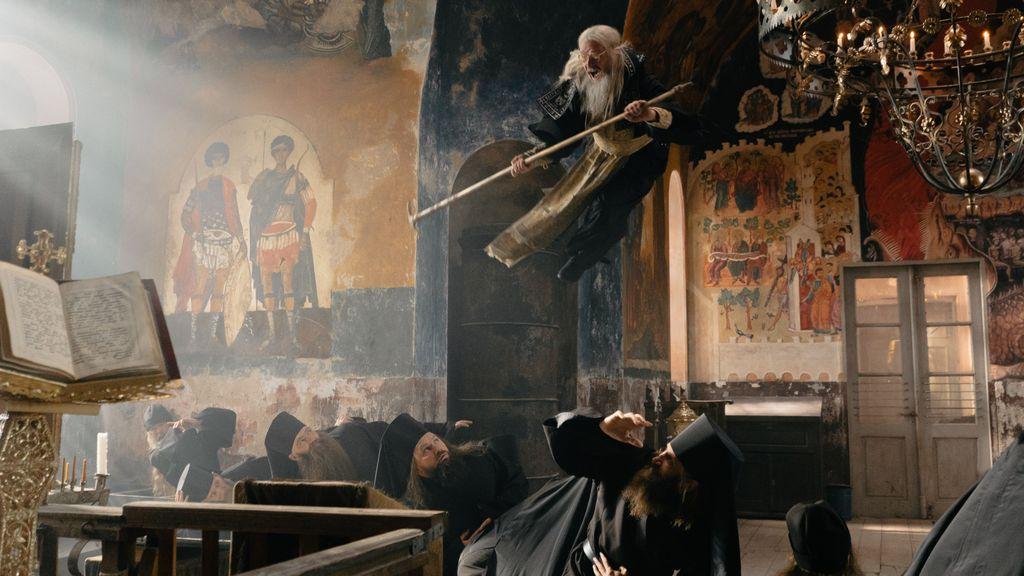Nobody can accuse Estonian director Rainer Sarnet of sticking to a formula. After turning heads on the arthouse circuit with his gorgeous black-and-white folk horror fable November in 2017, he’s now returned with a kitsch, Russian Orthodox kung-fu movie set during the burning embers of the Cold War. The only thing it has in common with its predecessor is in its devotion to oddness. If there is any political message hidden among the Black Sabbath-blasting wuxia warriors, extreme smash zooms, and moustachioed KGB officers wielding car exhausts, it’s not an obvious one. There’s simply too much on-screen chaos for any polemical intent to land. First and foremost, it’s a silly good time.
In the early ’80s, Rafael (Ursel Tilk) is the sole survivor of an attack by Chinese martial artists on the border of China and the USSR. Instantly enamoured by the skills utilised by his assailants, he decides to master the art. The place to go to learn this? The local Russian Orthodox monastery of course. There our gormless hero learns he’s got a bit to learn about fighting, but surprisingly his new masters appreciate that our metal-loving miscreant is holy enough to make a shrine of the Virgin weep honey. Complicating the push-me-pull-you between spiritual and pugilistic matters is his attraction to the comely Rita (Ester Kuntu).
In every respect, The Invisible Fight is as ludicrous as it sounds and is absolutely destined to be a cult success. It’s a wild mash-up of Shaw Brothers kung fu movies, grainy action films, slapstick comedy, Chuck Jones cartoons, and dadaist pranks. It hangs together about as well as the curtains in the brutalist apartment Rafael lives with his mum. Yet it’s made with real flair and a sense of pure joy. There are exaggerated sound effects, monks yelling ‘Hallelujah’ as they fly through the air having been kicked up the arse, and a truly gleeful central performance from Ursel Tilk, as the dim but loveable hero.
Clocking in at nearly two hours, The Invisible Fight struggles to sustain its relentless pace and tone and becomes wearying. With the narrative structure very much taking a back seat there isn’t enough actual meat to justify such a run time. Compared to November, which is equally odd, but has a consistent structure and narrative, it’s a step back in terms of storytelling. For those who love pure anarchy on screen however, this will be absolute manna from heaven, or honey from the Virgin. And whenever it does threaten to flag, there is always another moment of invention or inspired gag around the corner. Ramshackle in structure but precise in its aesthetic, it’s further evidence that in Rainer Sarnet, genre fim has a real maverick with a restless sense of invention that should be cherished.
Screened as part of Glasgow Film Festival 2024


Comments